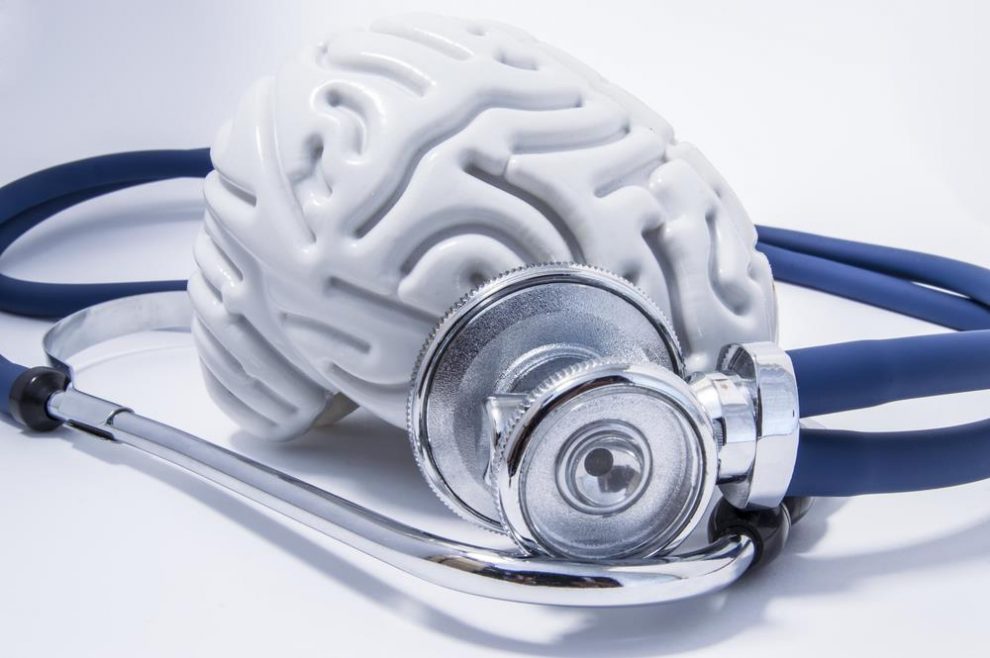Neurology deals with the study of structure and all the procedures involved in the treatment of malfunctions of central nervous system. The nervous system is a complicated and delicate system which is meant to regulate the body activities along with necessary co-ordination. Our nervous system comprises of two main parts, the brain and spinal cord. These two are they key organs which control major body functioning. The branch of medicinal sciences is neurology where abnormalities of nervous system are studied along with the possible methods of treatment is studied. The nervous system include central and peripheral nervous system. The medicinal and scientific study of neuro sciences is known as neurology. There are certain units of body which are studied under this field of medicinal science “the neurology”, these body units include blood vessels (supplying or receiving blood from head and heart), receptors and effector tissues for example muscle tissues.
Contents
Neurologist Definition:
As we have discussed above that neurology is a branch of science which deals with the disorders and probable treatments of nervous system. The diagnosis and treatment of all conditions related to central and peripheral nervous system are studied under this subject.
What is a Neurologist?
On the other hand, a neurologist is a doctor or a physician who is specialized in the study of neurology, the one who can investigate, diagnose and evaluate the possible treatment to be provided for certain neurological disorders. The clinical research programs, clinical trials and translational researches may also require neurologist. While talking about neurology, we generally refer to simple and non surgical specialization. On the other hand, the one who is specialized to perform surgeries is called a neurosurgeon and likewise, the science is known as neurosurgery.
Difference Between Neurology and Neurosurgery:
Neurologists are the ones who specialize in the diagnosis and treatment of nervous system disorders central nervous system or peripheral nervous system, the conditions which are related to brain and nervous system along with other supporting systems and associated tissues. Among neurologists, some doctors keep their focus on neuro-physiology while others study the diagnostic evaluations like electroencephalograms and electromyography to find out the abnormalities (if any) in the neurological functioning of a person. Some of the doctors however study the disorders and treatments of neuro-developmental conditions like learning disabilities and cerebral palsy. Neurologists also study the pain management and help to treat the patients showing debilitating chronic pains or either short term pains. There is another branch included in neurology which deals with the study and ways of treatment for circulatory system disorders which directly or indirectly involves the functioning of spinal cord, brain or nerves. The branch is called vascular neurology and the one who studies this is known as vascular neurologist.
Neurosurgeons on the other hand use certain kind of therapies like radiation, endoscopic microsurgery, traditional methods of surgery and other neurological conditions. Neurosurgeons basically deal with traumas of brain and spinal cord, strokes, tumors and associated conditions of spine and brain. The neurosurgery is hence a complex study and neurosurgeons’ task is often seen overlapped with orthopedic surgeons and plastic surgeons or we can say reconstructive surgeons. In some patients however, the specialists of these all fields work in close collaboration to ensure the good and healthy outcomes for the patients.
Recommended Reading :

Neurology and neurosurgery are closely aligned and in both one requires a complete and in depth concepts and understandings of functions and structure of nervous system. The neurologist will evaluate the conditions which do not require surgical invasion, hence they are more likely being called diagnosticians and if the condition needs surgical invasion, they are supposed to refer it to the neurosurgeons to rectify. The neurosurgeons sometimes also find that surgery is not needed and they advise some medicinal therapy to the patients. If needed, neurosurgeon will perform surgery to correct the condition which is disturbing the nervous system functioning. Generally once the surgery is done, there is a dramatic improvement in the patient and his overall well being. Neurosurgeons and neurologists make sure to use minimally invasive catheter based or endoscopic treatment with the help of miniature tools to repair the cerebral blood vessels.
The other major difference between neurologist and neurosurgeon is an income; there is a huge margin in the earning of neurosurgeons and simple neurologists as neurosurgeons earn far more as compared to neurologists since they are highly expertise in the surgical methods of treatment.
Pioneers of Neurology:
Jean Martin Charcot is one of the pioneers in the field of neurology. When appointed as a professor of pathological anatomy, he delivered his expert lectures on organs and their diseases and also provided cadavers and specimens for his students to study and understand well. It would be right to call him the founder of modern neurology, some of his key achievements include the vascular supply to brain, identification of differences among tremors resulting either from Parkinson’s disease and multiple sclerosis, and he also identified and differentiated hysteria and epilepsy and launched rehabilitation centers for the best treatment of his patients. He also formulated a triad to diagnose cholangitis comprising of jaundice and fever. He also found the causes and treatment of multiple sclerosis.
What Does a Neurologist Do?
There are some neurologists who take training in one particular field while others take interest in certain areas of neurology like epilepsy, sleep medication, neuromuscular, disorders of movement and pain management. In most of the medical universities, after the completion of graduation from medical school, the specialists of neurology are supposed to complete one internship year which is followed by 3 years long training program in the relevant department.
There are some additional fellowship programs which neurologists can take and they generally focus one of particular fields of neurology. The length of fellow ship is one or two years. There are some other sub-specialties in the field of neurology which include:
• Brain injury medicine
• Clinical neurophysiology
• Epilepsy
• Hospice
• Palliative medicine
• Neuro developmental disabilities
• Neuromuscular medicine
• Pain medicine
• Sleep medicine
• Neuro critical care
• Vascular neurology which includes the diagnosis and treatment of strokes
• Behavioral neurology
• Infant neurology
• Child neurology
• Headaches and migraines
• Multiple sclerosis
• Neuro rehabilitation
• Interventional neurology.
In certain countries like Ireland, UK, neurology is considered as a sub specialization of a general medicine. After the completion of 5-9 years of medical schooling and one year as house officer, neurologist is supposed to pass an assessment for Membership of Royal college of Physicians before they go further to complete two years of core medical training and then they are allowed to follow specialist training course in neurology. There is a lot more for a neurologist to follow. In past, neurologists were supposed to spend few years of working in psychology departments and get a diploma in psychological medicine, though it is not in fashion now days since so many sub specialties have been launched. A basic psychiatric qualification takes three years to obtain; it is not generally required any more. For degrees which are higher and superior, a period of research is also needed. There is another department of neurology which is called Physiatry in United States; it deals with the rehabilitation medication. These include medication for strokes, epilepsy and migraines, furthermore, brain injuries are also dealt with in these rehabilitation centers.
Recommended Reading : Wish to become a successful neurosurgeon ?
Definition of Neurologists:
Neurologists are actually doctors who expertise in the diagnosis and treatment of certain medical conditions which are related to either peripheral or central nervous system. Neurologists treat variety of areas but more often they are known for the brain care they provide. The specialist in neurology provides treatment for any sort of medical condition where surgical invasion is not needed.

Meaning of Neurologist:
Neurologists are supposed to check up the patients who are referred by a primary health care physician or any person who feels and identifies the underlying problems with the nervous system. Neurologists may also take a note on some other fitness areas like vision, reflexes and coordination to get a deep insight into a patient’s ailment. Touch and smell tests are often conducted by neurologists and this is to ensure that the patient is experiencing healthy and normal sensations physically. The outcomes of these basic tests will determine whether the neurologists require further tests to make any significant diagnosis or if the problem is diagnosed, the solution will be presented. find best neuro physician in Sialkot
Primary consultation:
There is always a need of neurologist to interact with family practitioner, once patient meets the neurologist, the neurologist might advise doctor regarding any undergoing treatment. If conditions are simpler, the neurologist will guide family doctor to continue the treatment by giving some prescriptions. The family doctor however can oversee the plan of treatment with instructions from the neurologist.
Medical staff:
Medical and non-medical staff’s work is also overseen by the neurologists who work in hospitals or clinics. The neurologists also monitor the lab work and communicate with research workers since they have to study and interpret the data outcomes. Some complicated cases are also discussed with colleagues and delegates and are later taught to interns. in Pakistan Dr Sajjad is best neuro physician in Sialkot
Suggested surgery:
Neurologists earn comparatively less as compared to neurosurgeons this is because they are not involved in surgeries, as we all know, surgery is an advanced medical procedure and only specialist of surgery can perform it, the task of neurologist is to evaluate whether a condition can be treated medically or surgery is required, if needed, he will refer the patient to neurosurgeon for surgeries of brain and spinal cord. Neurologists generally do not follow up their treatment plan for complicated cases; a neurosurgeon will evaluate the patient and will make some recommendations, with the help of lab technicians, additional testing is done.
How a Neurologist will take a Physical Examination of a Patient?
When a patient visits a neurologist for examination, the health history and background of the patient is seen with special attention and it is tested whether the current condition is linked with the previous ailments or not. The patient is then asked to get a neurological exam where the mental status of a patient is tested, functioning of cranial nerves and vision is tested, and coordination, reflexes, strength and sensations of a person are also checked. These all tests will prove and help neurologist to find out whether the patient has problem with his nervous system or some other underlying conditions are involved. Neurologists develop their differential diagnosis making use of pathology localization. Some other forms of evaluations are needed sometimes to prove a diagnosis and guide therapy and suitable management.
Some other tests are there which are frequently asked by neurologists, these tests include CAT-Scans (Computed axial tomography), MRI (magnetic resonance imaging) and ultrasound of blood vessels supplying blood to head and neck regions. Lumbar punctures are also performed by neurologists along with EEG (electroencephalography), needle electromyography (EMG) etc. Lumber punctures give neurologists a picture of cerebro spinal fluid of a patient, more than anything else; the genetic testing is also an important tool in finding out the inherited diseases.

Conditions Treated by Neurologists:
Some common conditions in which neurologists are supposed to be consulted for best treatment include:
• Headaches and migraines
• Neuropathy
• Strokes
• Radiculopathy
• Seizures
• Dementia
• Epilepsy
• Alzheimer’s disease
• Hyperactivity syndrome
• Parkinson’s disease
• Multiple sclerosis
• Head trauma
• Sleeping disorders
• Neuromuscular diseases
• Infections of nervous system
• Tumors
Neurologists are also requested sometimes to find out the unresponsiveness of patients who are on life support so that the brain death is confirmed.
The neurological problems will be treated by certain ways, the common methods of treatment include, and referral to physiotherapist, medication prescription or in extreme conditions a surgical process.
There are certain specialties for neurologists in certain parts of nervous system and for carrying out specific procedures, for example, EEF can be efficiently used by neurophysiologists to diagnose and treat certain neurological disorders. Besides, neurologists also use intra-operative monitoring tools as well.
Some other neurologists are specialist in using electro-diagnostic medicines, NCSs and EMGs. In US the board of Electro-diagnostic medicine approves US doctors for electro-diagnostic medicines and technologists are also certified in the field of nerve conduction studies. In America there is another sub specialty which is generally known as sleep medication which comprises of anesthesiology, family medicine, internal medicine and neurology. While as we consider neurosurgery is totally a different path of training in which surgical methods for the treatment of disorders of nervous system are studied.
Some other specialists which are not certified medical doctors like those with PhD degrees in chemistry or biology and some of them do research of nervous system are never termed as neurologists. These neuroscientists perform lab experiments and clinical trials to find out the working of nervous system, the disorders and possible treatment methods to be applied.
There is a big difference between neuroscience and neurology. There are number of neurologists who work in hospitals as a part of their academic training where research is also conducted by them along with the treatment of patients. While some of them are also given a task to teach neurology to medical students.
Key Responsibilities of a Neurologist:
Neurologists are generally responsible for diagnosing, treating and managing all the medical conditions associated with nervous system. When needed, neurologists refer the case to neurosurgeons to execute surgery. It is also responsibility of a neurologist to check out the patient for brain death.
There are certain specialties of neurology which are variable from country to country, let’s study what specialties are there in the field of neurology:
• Head Trauma:
It is generally treated by neurosurgeons while sequelae of this trauma are generally treated by neurologists or any expert in the medicine for rehabilitation.
• Strokes:
Strokes although are managed and checked under local hospitals or internal medicines, but with the advancement in the field of vascular neurology and interventional neurologists there is always an emerging need for the stroke specialist who can check the damaged area and can offer essential medication. Also the joint commission establishment has increased the need of neurologists in stroke departments in the hospitals.
• Headaches and migraines:
Generally for the treatment of headaches and migraines, patients consult general physicians but sometimes depending on the severity of case, neurosurgeons are also referred. Same is the case with the patients who are suffering from acute sciatica.
• Sleep disorders:
For the treatment of sleeping difficulties and abnormalities, usually pulmonologists are consulted which will analyze the sleep pattern and suggest the necessary actions. In some cases psychiatrists are also consulted especially if a person is suffering from anxiety or depression disorders.
• Cerebral palsy:
It is generally treated by pediatrician while neurologists are consulted with the growing age.
• Rehabilitation physicians:
They normally treat the patients who are suffering from neuromuscular diseases with the help of certain latest innovations like electro diagnostic studies, EMG and the studies of nerve conduction.
• Geniatric medicine:
The age related disorders like Parkinson’s disease , dementia, strokes and gait disorders are managed by geniatric medicine specialists.
• Clinical neuropsychologists:
They generally evaluate the behavioral pattern of brain, plan the rehabilitation policies, determine cognitive strength and weaknesses etc.
Neurologists Around Me:
You can find neurologists in general hospitals, physiotherapy centers, rehabilitation centers, Peds departments etc. Do check out for the reviews of previous patients to that particular neurologists before consulting and make sure he has got plenty of knowledge and modern tools for better diagnosis and treatment.

Pediatric Neurology or Peds Neurology:
Pediatric neurology is another sub specialty of neurology; child neurology is a specialized branch of medicine dealing with the diagnosis and management of neurological conditions in new born kids (neonates), infants and kids until they reach the age of adolescence.
In this department, the diseases and complications associated with the brain, spinal cord, autonomic nervous system, peripheral nervous system, muscles and associated blood vessels are studied and investigated, the diseases who particularly affect the kids and neonates.
The pediatric neurologists studies and specializes in the training for the proper management of the diseases of a child involving nervous system, they assess, diagnose and present possible treatments of disorders. Peds neurologists often have to deal with considerably variable diseases from simpler to highly complicated disorders. The simpler disorders involve migraine, cerebral palsy while complex disorders involve neurodegenerative disorders etc.
There are certain conditions which pediatric neurologists have to study in their field, some of the main pediatric conditions include:
• Genetic diseases of the nervous system including central and peripheral nervous system
• Certain congenital metabolic deformities which either directly or indirectly affect the nervous system
• All the problems which are associated to neurological development during childhood
• Certain birth defects which are congenital and affect brain and spinal cord, like in case of spina bifida
• Problems in neurological development and causes of deviations from normal development and possible treatment
• Epilepsy in childhood
• Feverish seizures
• Cerebral Palsy and other movement disorders
• Progressive conditions associated with neuromuscular development like that of muscular dystrophy
• Abnormal mental development which is likely to cause speech disability and other discomforts
• Abnormal development of brain which tends to result in learning disabilities
• Disorders such as autism spectrum
• Attention deficit which is grouped under behavioral disorder and is a form of hyperactivity disorder
• Headaches and migraines
• Abnormal fluid build-up in the brain, the condition is known as hydrocephalus
• Cranial injuries and associated risks, trauma management
• Brain tumors
• Palliative and hospice medication
• Neuro-muscular medicine
• Sleeping disorders
• Abnormal development of blood vessels (vascular pediatric neurology)
• Intellectual disability
Pediatric neuro specialists are actually the consultants to general physicians who tend to refer the kids to pediatric neurologists for special and intensive care. There are, however some kids with long term neurological diseases, the pediatric neurologists are supposed to offer regular care as well as consultation to the kid.
You may find pediatric neurologists in different environments including pediatric hospitals and OPDs, university medical units and some private clinics which are run by experienced and qualified neurologists. The understanding and knowledge of neurologist for the diagnosis and treatment of general conditions affecting nervous system is always significant. Only expert in the childhood diseases and abnormalities can sort out the underlying ailments and provide possible treatment.
In general, almost 50% of the patients who are admitted in pediatric neurology departments are those who are suffering from epilepsy, while the other 20% exhibit learning difficulties and other problems in development while 20% of them are often seen suffering from headaches. A very few percentage of kids are brought in and treated for metabolic or genetic ailments. Generally the pediatric neurological centers are fully equipped with advanced technology, tools and other facilities which are needed to treat certain neurodegenerative disorders, stokes and pediatric epilepsy.
Type of Training Requirements for Being a Child Neurologist:
Medical doctors who are expertise in child neurology are supposed to:
• Complete four years of their academics at medical school
• Couple of years in pediatric residency
• Three or more years of specialist training in adult or child neurology
• Most of the Pediatric neurologists have certificates from Pediatrics of American board and American board of Psychiatry and neurology.
From birth to adolescence, the neurological disorders of kids are treated by Pediatric neurologists; they opt for taking good care of kids from the peak of their medical studies and practice. Every child with the particular disease needs special care attention and treatment and neurologist in pediatrics has plenty of advanced training and experience to provide essential treatment to the child to overcome his illness.

Availability of Pediatric Neurologist:
Pediatric neurologists are easily accessible in medical setting which includes pediatric hospitals, universities and medical centers, OPDs. You can also visit pediatric neurologist at his private office or clinic.










